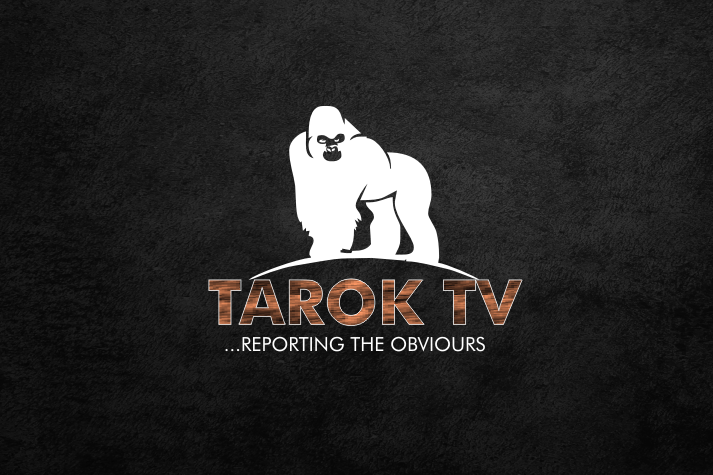Remote Work Revolution: How to Find Telecommuting Jobs in the US
- Home /
- blog post
The past decade has witnessed a transformative shift in the way we work, with remote employment becoming a mainstream option for professionals across various industries. The rise of telecommuting jobs has been accelerated by advancements in technology, changes in workplace culture, and the impact of global events like the COVID-19 pandemic. In this blog post, we'll explore the remote work revolution and provide insights into how individuals can find and thrive in telecommuting jobs in the United States.
Understanding the Telecommuting Landscape:
1. Remote-Friendly Industries: Certain industries have seamlessly embraced remote work. Information technology, marketing, writing, customer service, and graphic design are among the sectors where remote work is not only feasible but often preferred.
2. Remote Job Roles: A wide array of job roles is suitable for telecommuting, ranging from software developers and digital marketers to virtual assistants and project managers. The key is identifying positions that align with one's skills and the nature of the work.
3. Gig Economy Opportunities: The gig economy, characterized by short-term and flexible jobs, has expanded with numerous opportunities for remote work. Freelancers, consultants, and independent contractors can find telecommuting gigs on various platforms catering to specific skill sets.
Navigating Job Search Platforms:
1. Online Job Boards: Traditional job boards like Indeed, Glassdoor, and LinkedIn offer dedicated filters for remote job searches. Job seekers can use these platforms to find telecommuting positions across a wide range of industries and job functions.
2. Remote Job Websites: Specialized remote job websites, such as Remote.co, FlexJobs, and We Work Remotely, focus exclusively on telecommuting opportunities. These platforms curate remote jobs, providing a streamlined approach for individuals seeking flexible work arrangements.
3. Company Career Pages: Many companies actively promote their commitment to remote work on their official career pages. Researching and directly applying through a company's website can provide insights into its remote work policies and job openings.
Crafting a Remote-Ready Resume:
1. Highlighting Remote Skills: Emphasize skills that are essential for remote work, such as effective communication, time management, and proficiency in collaboration tools like Slack or Zoom.
2. Showcasing Remote Experience: If applicable, highlight any past remote work experience. Demonstrate your ability to work autonomously, meet deadlines, and collaborate effectively with team members across different locations.
3. Quantifying Achievements: Use quantifiable metrics to showcase achievements in previous roles. This provides tangible evidence of your contributions and can set you apart in a competitive job market.
Mastering Remote Interviews:
1. Technical Proficiency: Ensure you are comfortable with the technology commonly used in remote work settings. Familiarize yourself with video conferencing tools, project management platforms, and collaboration software.
2. Communicating Effectively: Remote work relies heavily on written and verbal communication. Showcase your ability to express ideas clearly and concisely. During interviews, be prepared to discuss your communication style and how you overcome challenges related to virtual collaboration.
3. Demonstrating Self-Motivation: Remote work requires a high degree of self-motivation and accountability. Provide examples of how you've successfully managed projects or tasks independently in the past.
Navigating Time Zones and Remote Team Dynamics:
1. Time Management: Clearly communicate your availability and work hours. Be mindful of time zone differences and establish expectations for communication and collaboration.
2. Building Relationships: Actively participate in virtual team-building activities, video conferences, and chat platforms to foster connections with remote colleagues. Building a strong remote professional network can be just as valuable as in-person connections.
3. Remote Work Etiquette: Familiarize yourself with remote work etiquette, including responsiveness to emails and messages, setting clear expectations, and being proactive in communication. Showcase your ability to adapt to virtual work environments during the hiring process.
Overcoming Remote Work Challenges:
1. Establishing a Home Office: Create a dedicated workspace that minimizes distractions and supports productivity. Invest in necessary equipment, such as a comfortable chair, reliable internet connection, and noise-canceling headphones.
2. Maintaining Work-Life Balance: Set clear boundaries between work and personal life. Establish a routine, take breaks, and disconnect from work at the end of the day to avoid burnout.
3. Continuous Learning: Stay updated on remote work best practices and tools. As the landscape evolves, being adaptable and embracing new technologies will contribute to long-term success in telecommuting roles.
The Future of Remote Work: Trends and Opportunities
As the remote work revolution continues to reshape the professional landscape, several trends and opportunities are emerging, providing a glimpse into the future of remote employment in the United States.
Hybrid Work Models:
Many organizations are adopting hybrid work models, combining remote and in-person work. This flexible approach allows employees to choose when and where they work, striking a balance between the benefits of remote work and face-to-face collaboration. Job seekers can explore positions that offer hybrid work options, providing the best of both worlds.
Global Talent Pool:
Remote work has dissolved geographical barriers, enabling companies to tap into a global talent pool. Job seekers can explore opportunities with organizations that embrace remote hiring, allowing them to work for companies based anywhere in the world. This globalization of talent opens doors to diverse experiences and perspectives.
Upskilling for Remote Roles:
As remote work becomes increasingly prevalent, certain skills become even more crucial. Individuals can invest in upskilling to enhance their remote work capabilities. This may include mastering collaboration tools, project management software, and improving digital literacy to stay competitive in a remote-centric job market.
Industry-Specific Remote Roles:
While certain industries have readily embraced remote work, others are gradually adapting. The future promises more industry-specific remote roles as businesses innovate and adjust their practices. Professionals can stay informed about industry trends and seek out organizations leading the way in remote work adoption within their sectors.
Digital Nomad Opportunities:
The rise of remote work has given birth to the digital nomad lifestyle, where individuals can work from anywhere in the world. Countries and cities are actively promoting themselves as hubs for remote professionals. Job seekers interested in a more nomadic lifestyle can explore opportunities that align with the digital nomad movement.
Remote Management and Leadership Roles:
As remote teams become the norm, there is an increased demand for managers and leaders who excel in virtual environments. Individuals with strong leadership skills, a deep understanding of remote team dynamics, and the ability to foster a positive remote work culture are poised to thrive in leadership roles within remote-centric organizations.
Health and Well-being Considerations:
The remote work revolution has prompted a heightened focus on employee well-being. Organizations are recognizing the importance of supporting remote workers' mental and physical health. Job seekers can prioritize employers that prioritize work-life balance, mental health resources, and wellness initiatives, ensuring a holistic approach to remote employment.
Entrepreneurship and Remote Ventures:
Remote work has empowered individuals to explore entrepreneurial ventures from the comfort of their homes. Freelancers, consultants, and small business owners can leverage remote platforms to reach a global audience. Job seekers with an entrepreneurial spirit can explore opportunities to create their own remote businesses or collaborate with remote-first startups.
Continuous Adaptation and Learning:
The future of remote work is marked by continuous adaptation. Technology, communication tools, and work practices will evolve, requiring professionals to stay agile and committed to lifelong learning. Job seekers can position themselves as adaptable candidates who thrive in dynamic remote work environments.
Conclusion
The remote work revolution in the United States has opened up unprecedented opportunities for individuals seeking flexibility, work-life balance, and diverse career paths. Navigating the landscape of telecommuting jobs requires a proactive approach, from crafting a remote-ready resume to mastering virtual interviews and overcoming the unique challenges associated with remote work.
As technology continues to advance and the professional landscape evolves, the ability to thrive in remote work environments will be an increasingly valuable skill. By embracing the principles of effective communication, adaptability, and self-motivation, individuals can not only find success in telecommuting jobs but also contribute to the continued growth of the remote work revolution.

About Admin - Admin
TarokTv, ...Reporting the obvious.
Contact
Phone number: 07062319173
Email: [email protected]
Reach out to us with any news or article.
Latest Articles

Success leaves clues, and those who seek to make a difference must study the lives of those who…
read more
Langtang, a town in Plateau State, Nigeria, is not just another dot on the map but a significant origin for…
read more
Brief Biography of Gen. (Senator) Jeremiah Timbut Useni
Early Life and Education:
Jeremiah Timbut Useni, often referred to as "Jerry Boy," was born on February 16, 1943,…
read more
The Ibiari: A Sacred Tradition in Tarok land
The Ibiari Oga Sa festival, an annual tradition in Tarokland, was celebrated today as part of the year-end observance marking…
read more
ITAROK PA IZING BY REV. DR. SELBUT LONGTAU
A PAPER PRESENTATION AT ITAROK PA IZING 2ND CARNIVAL HELD AT THE AZI NYAKO YOUTH CENTRE, JOS, 30TH NOVEMBER, 2024
… read more
TarokTv News: The Return of "Gathering of Bookworms" - A Literary Revival in Langtang North/South
TarokTv is thrilled to announce the upcoming edition of the Gathering of Bookworms, a celebrated event aimed at uniting the…
read moreLatest Albums
Recent videos
Copyright © 2020 - TarokTv designed by Taroktv Media.








leave a comment
0 comment